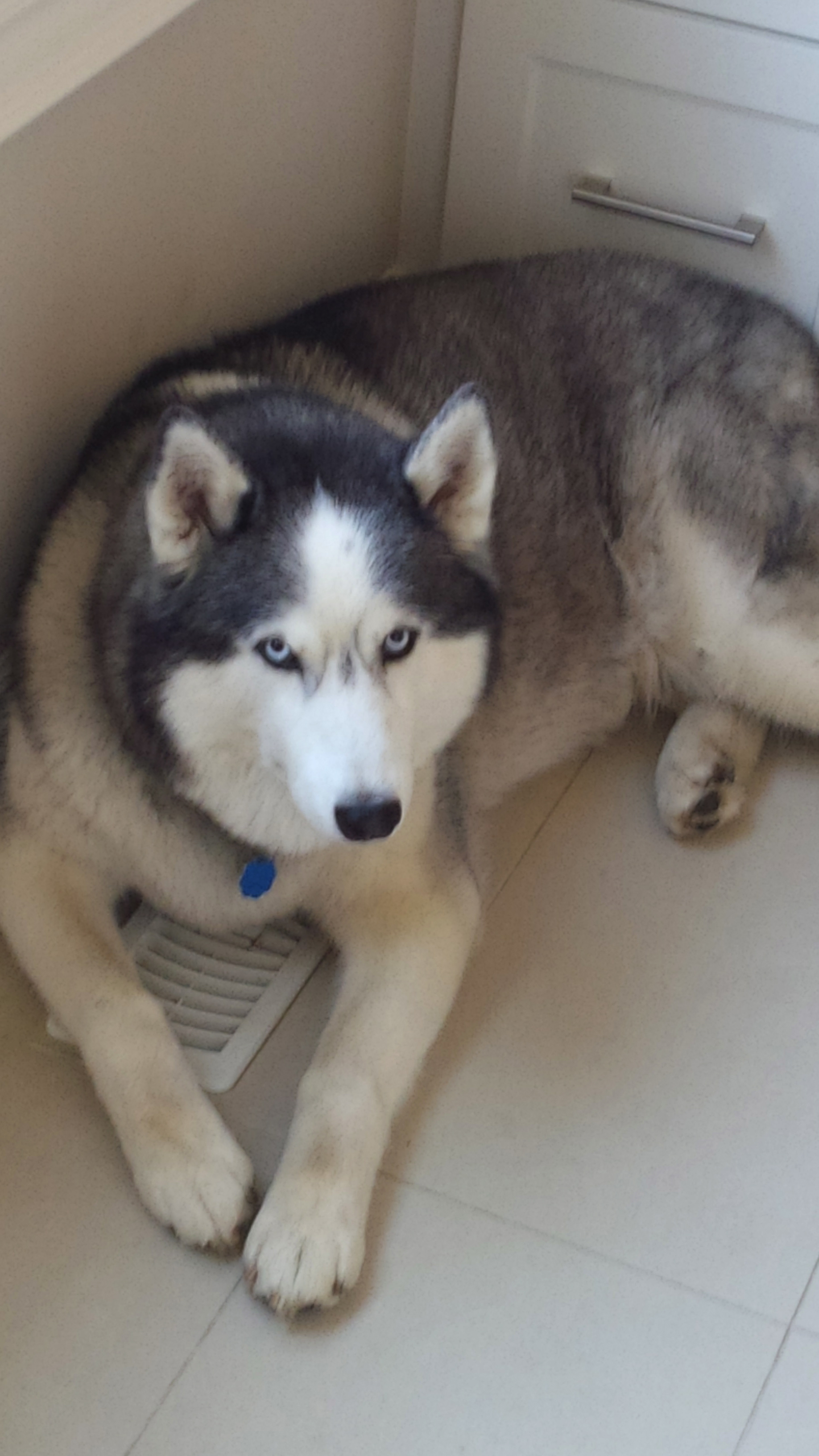I really hate doing fasting bloodwork. It’s inconvenient, intrusive, and it induces a level of anxiety in my life that I could do without. I start to worry about it and organize for it about 2 or 3 days ahead of time. I have to get someone else to walk the Russian, because no way is he going to wait until I get home from the lab to empty his bladder and bowels – and really, why should he, when he hangs on through the night knowing that, come morning, he will have his usual hour-long hike at the break of day?
Except if I’m fasting, I can’t take him, no matter how early I get up, because it’s too risky from a low blood sugar perspective – I need to eat before I walk for an hour. And if I just leave the house in the morning without taking him, well then he will assume that I have abandoned him and won’t be back until later in the day.
So there’s that. There is also the wobbly pre-coffee feeling as I head out the door to the lab. Even though I reduce my basal insulin on the day of the test so that I start off a little higher than normal, so that I won’t slip too low and have to eat something to stave off a low, I’m never sure it’s going to work. Sometimes it does and sometimes it doesn’t. And if it doesn’t and I’m too low, then I have to tank my planned lab visit and try again the next day – which means that I have to arrange for the dog to be walked by someone else once again.
Assuming that I get all the way to the lab without a low blood sugar, once I get there, I have to line up and wait for my turn. There appears to be no mathematical progression to the order in which they call people in to get their tests done. I know that this is because the staff prioritizes people according to their own criteria for who need to be processed most urgently. A Type 1 on the verge of a low blood sugar because she has to be off her regular eating schedule does not appear to be a high priority. I could be wrong and maybe all that is factored into the calculation, but all I know is I’m sitting there listening very carefully to my body, trying to avoid the crash and burn of a dangerous low, and the minutes are ticking by – it makes me anxious. I wish there was some way that I could minimize the unknown time element in all this, but the hospital lab will not make appointments for specific dates and times, and there is no way of knowing how busy they will be on any given morning. Since Type 1’s have to do this testing on a regular basis ( 3 or 4 times a year, generally) year in and year out, one would think that there would be some kind of system for making it less risky and uncertain. One would think that – but there isn’t.
Then there is the whole issue of how much I hate being in a hospital or clinic or any other kind of medical treatment setting because it launches all kinds of negative feelings of helplessness, hopelessness and despair in me. This is most likely an accumulation of a lifetime of living with a chronic medical condition that requires medical supervision and intervention on an ongoing basis. I never feel like a sick person until I am in a medical setting. Then it all comes rushing in on me and I have to fight it just to keep from crumpling into a heap on the floor. It fills me with a kind of grey numbness and I stay in that fog until I’m well clear of the hospital.
This is the case even if I’m not fasting, but just having random bloodwork and urinalysis.
Most of the lab technicians are really lovely, gentle people, who seem quite determined not to hurt or intimidate you. They are calm and move slowly. They handle your arm with care as they tighten the rubber band around the upper part of it to make your veins pop into view. They are gentle and delicate as they push the needle into your vein, and they try to keep from jarring it when they change the blood collection vial, which for me is usually between 4 and 7 times. They encourage you to sit quietly for a minute while your body adjusts to the blood loss, and then they send you on your way with a cheery: ‘All done. Have a good day.’
So why do I have such anxiety about getting labwork done? I suppose that part of it is that it is a reminder that I’m not ‘normal’ in terms of my metabolism, that I could become an inmate at a hospital at anytime through no fault of mine. And of course, I’m always anxious about the results. Type 1 is an insidious medical condition that permeates your body and all its systems over time, causing damage at a microscopic or molecular level. You don’t know you are getting complications until you have them. It sneaks up on you and attacks when you’re not looking. Where you can’t look. So the labwork is necessary as an early-warning system, to detect minute changes while there may still be time to do something about them.
Going for labwork is necessary because it provides me with key information about how I’m managing my condition and some hints about where I might have to pay closer attention. It also reminds me of all the things that can go wrong, all the damage that diabetes can wreak on my body. I have felt for 41 years that I am living on borrowed time, that I somehow escaped sudden death but now death follows me around and tries to chip away at me when I’m not looking. It reminds me that I will die, no matter what I do or how great I am at managing this thing. My challenge is to delay it for as long as possible. I don’t want to die at all, but I really don’t want to die of incremental damage if I can help it.
So I walk away from the lab feeling good about myself, feeling that I’m doing my part to stay healthy, and knowing that I won’t have to do labs again for at least three months and maybe longer if the results are in target. I don’t even know the results yet, but I already feel better because I know that I will have them, and that information gives me more power to control my condition and continue to live the life I want to live.
(Photo and text © Lynda Covello, 2015. All rights reserved. )


